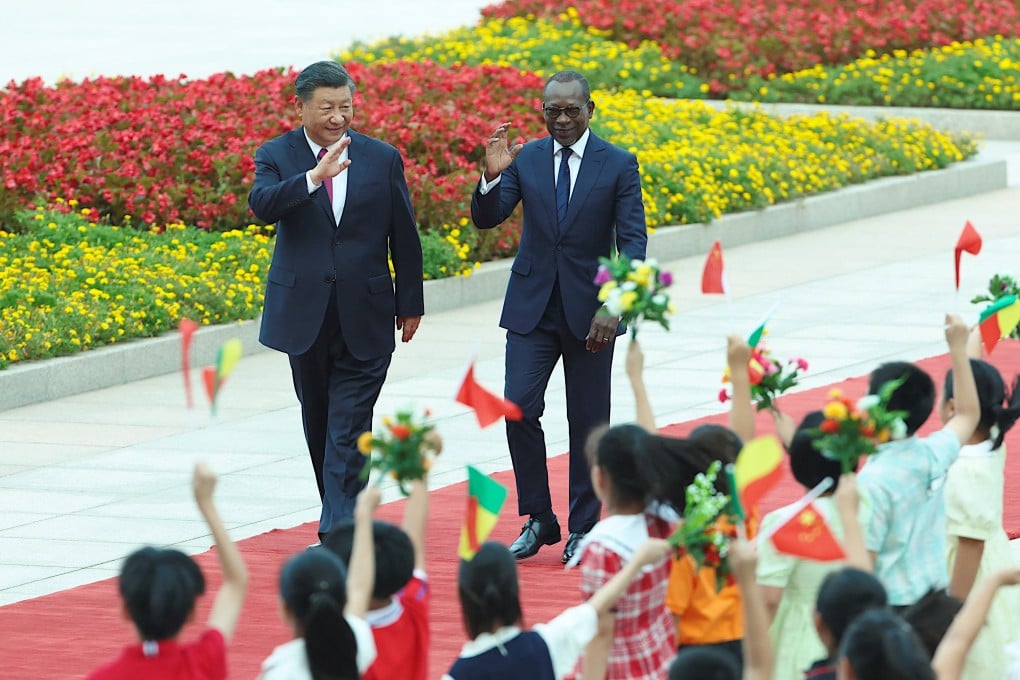China pledges stronger economic ties with Benin
- President Xi Jinping promised to support industrialisation and help the West African nation promote investment after meeting his counterpart Patrice Talon
- Trade between the two countries rose by a third last year, mainly due to increased exports of soybeans and cotton to China

China and Benin have agreed to elevate relations to a strategic partnership as Beijing promised to boost the West African nation’s infrastructure, trade and industry.
Chinese President Xi Jinping promised to support sectors such as agriculture, forestry, fisheries, and vocational and technical education through the establishment of an investment promotion mechanism between the two countries.
Xi said China will encourage more of its companies to invest in and start businesses in Benin, and help build infrastructure.
According to the Chinese loans to Africa database compiled by Boston University’s Global Development Policy Centre, China had advanced US$536 million to Benin between 2000 and 2020 – an amount that mostly went into the building of roads, communications and water infrastructure. In January, China agreed to cancel part of Benin’s debt.
The two presidents also agreed to expand trade to allow more Beninese products to enter the Chinese market.